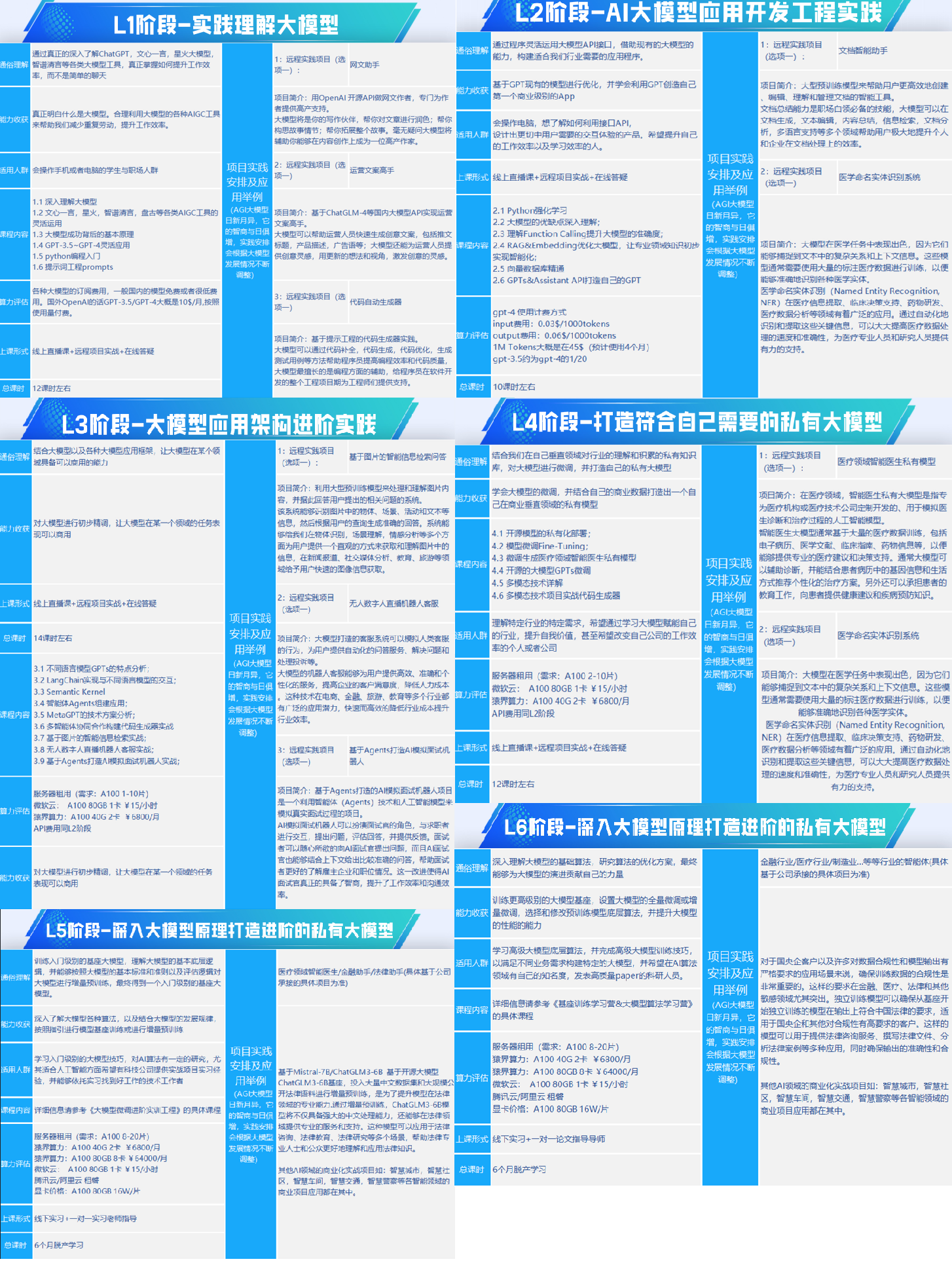在前两篇文章里,我们已经介绍了如何在本地运行Ollama以及如何通过提供外部数据库的方式微调模型的答案。本篇文章将继续探索如何使用“函数调用(function-calling)”功能以扩展模型能力,使其在“智能”的道路上越走越远。
function-calling介绍
根据OpenAI官方文档,function-calling是使得大型语言模型具备可以连接到外部工具的能力。简而言之,开发者事先给模型提供了若干工具(函数),在模型理解用户的问题后,自行判断是否需要调用工具以获得更多上下文信息,帮助模型更好的决策。
举个例子:在[上一篇文章])我们是利用Document loaders将事先准备好的文本作为上下文提供给模型,而使用function-calling以后,我们只要提供一个“搜索函数”作为工具,模型即可自己通过搜索引擎进行搜索然后得出答案。
得益于最新的模型训练,现在的模型既能够检测何时应调用函数(取决于输入),还能够以比以前的模型更贴近函数签名的方式响应 JSON。
用途
function-calling有什么用?官网给出3个例子:
- 创建通过调用外部 API 回答问题的助手
- 将自然语言转换为 API 调用
- 从文本中提取结构化数据
下面我们就一步一步来理解一下function-calling。
定义function
首先定义4个function,这4个function有不同的使用场景。
def get_gas_prices(city: str) -> float:
"""Get gas prices for specified cities."""
print(f'Get gas prices for {city}.')
def github(project: str) -> str:
'''Get the infomations such as author from github with the project name.'''
print(f'Access the github for {project}.')
def get_weather(city: str) -> str:
"""Get the current weather given a city."""
print(f'Getting weather for {city}.')
def get_directions(start: str, destination: str) -> float:
"""Get directions from Google Directions API.
start: start address as a string including zipcode (if any)
destination: end address as a string including zipcode (if any)"""
print(f'Get directions for {start} {destination}.')
定义Prompts
functions_prompt = f"""
You have access to the following tools:
{function_to_json(get_weather)}
{function_to_json(get_gas_prices)}
{function_to_json(get_directions)}
{function_to_json(github)}
You must follow these instructions:
Always select one or more of the above tools based on the user query
If a tool is found, you must respond in the JSON format matching the following schema:
{{
"tools": {{
"tool": "<name of the selected tool>",
"tool_input": <parameters for the selected tool, matching the tool's JSON schema
}}
}}
If there are multiple tools required, make sure a list of tools are returned in a JSON array.
If there is no tool that match the user request, you must respond empty JSON {{}}.
User Query:
"""
这是一个复杂的提示,让我们一步一步来看:
首先,告诉模型我提供了4个工具,让它自己去查询这4个工具的元数据。function_to_json函数返回的内容如下:
{
"name": "get_weather",
"description": "Get the current weather given a city.",
"parameters": {
"type": "object",
"properties": {
"city": {
"type": "str"
}
}
},
"returns": "str"
}
这一步就是让模型根据这几个函数的元数据来理解函数,尤其是description写的应该尽量详细。
第二步提示模型作出自己的判断,根据上面提供的工具选择一个或多个进行调用,并指定了模型返回数据格式——JSON以及这个JSON的schema。
第三步等待用户的问题。
完整代码
import inspect
import json
import requests
from typing import get_type_hints
def generate_full_completion(model: str, prompt: str) -> dict[str, str]:
params = {"model": model, "prompt": prompt, "stream": False}
response = requests.post(
"http://localhost:11434/api/generate",
headers={"Content-Type": "application/json"},
data=json.dumps(params),
timeout=60,
)
return json.loads(response.text)
def get_gas_prices(city: str) -> float:
"""Get gas prices for specified cities."""
print(f'Get gas prices for {city}.')
def github(project: str) -> str:
'''Get the infomations such as author from github with the project name.'''
print(f'Access the github for {project}.')
def get_weather(city: str) -> str:
"""Get the current weather given a city."""
print(f'Getting weather for {city}.')
def get_directions(start: str, destination: str) -> float:
"""Get directions from Google Directions API.
start: start address as a string including zipcode (if any)
destination: end address as a string including zipcode (if any)"""
print(f'Get directions for {start} {destination}.')
def get_type_name(t):
name = str(t)
if "list" in name or "dict" in name:
return name
else:
return t.__name__
def function_to_json(func):
signature = inspect.signature(func)
type_hints = get_type_hints(func)
function_info = {
"name": func.__name__,
"description": func.__doc__,
"parameters": {"type": "object", "properties": {}},
"returns": type_hints.get("return", "void").__name__,
}
for name, _ in signature.parameters.items():
param_type = get_type_name(type_hints.get(name, type(None)))
function_info["parameters"]["properties"][name] = {"type": param_type}
return json.dumps(function_info, indent=2)
def main():
functions_prompt = f"""
You have access to the following tools:
{function_to_json(get_weather)}
{function_to_json(get_gas_prices)}
{function_to_json(get_directions)}
{function_to_json(github)}
You must follow these instructions:
Always select one or more of the above tools based on the user query
If a tool is found, you must respond in the JSON format matching the following schema:
{{
"tools": {{
"tool": "<name of the selected tool>",
"tool_input": <parameters for the selected tool, matching the tool's JSON schema
}}
}}
If there are multiple tools required, make sure a list of tools are returned in a JSON array.
If there is no tool that match the user request, you must respond empty JSON {{}}.
User Query:
"""
GPT_MODEL = "mistral:7b-instruct-v0.2-q8_0"
prompts = [
"What's the weather like in Beijing?",
"What is the distance from Shanghai to Hangzhou and how much do I need to fill up the gas in advance to drive from Shanghai to Hangzhou?",
"Who's the author of the 'snake-game' on github?",
"What is the exchange rate between US dollar and Japanese yen?",
]
for prompt in prompts:
print(f"❓{prompt}")
question = functions_prompt + prompt
response = generate_full_completion(GPT_MODEL, question)
try:
data = json.loads(response.get("response", response))
# print(data)
for tool_data in data["tools"]:
execute_fuc(tool_data)
except Exception:
print('No tools found.')
print(f"Total duration: {int(response.get('total_duration')) / 1e9} seconds")
def execute_fuc(tool_data):
func_name = tool_data["tool"]
func_input = tool_data["tool_input"]
# 获取全局命名空间中的函数对象
func = globals().get(func_name)
if func is not None and callable(func):
# 如果找到了函数并且是可调用的,调用它
func(**func_input)
else:
print(f"Unknown function: {func_name}")
if __name__ == "__main__":
main()
整段代码就是用来测试模型对问题的理解能力以及是否能正确判断调用哪个工具的。
我们来看下设定的4个问题:
"What's the weather like in Beijing?",
"What is the distance from Shanghai to Hangzhou and how much do I need to fill up the gas in advance to drive from Shanghai to Hangzhou?",
"Who's the author of the 'snake-game' on github?",
"What is the exchange rate between US dollar and Japanese yen?",
按照我们的设想,如果模型理解了我提供的工具的功能以及读懂了用户的问题,应该按照以下规则选择工具:
- 问题1应该对应的是
get_weather('Beijing') - 问题2应该对应的是
get_directions('Shanghai', 'Hangzhou')和get_gas_prices('Shanghai') - 问题3应该对应的是
github('snake-game') - 问题4应该没有对应的函数,模型不选择任何工具
下一步,我们也写好了代码进行测试,我们在工具函数里进行参数打印,以查看是否达到我们的预期。
结果
❓What's the weather like in Beijing?
Getting weather for Beijing.
Total duration: 3.481918084 seconds
❓What is the distance from Shanghai to Hangzhou and how much do I need to fill up the gas in advance to drive from Shanghai to Hangzhou?
Get directions for Shanghai, China Hangzhou, China.
Get gas prices for Shanghai.
Total duration: 5.467253959 seconds
❓Who's the author of the 'snake-game' on github?
Access the github for snake-game.
Total duration: 2.510993791 seconds
❓What is the exchange rate between US dollar and Japanese yen?
{}
No tools found.
Total duration: 0.200526292 seconds
总结
本篇文章介绍了使用function-calling使得Ollama模型具备可以调用外部工具的能力。也对一些场景进行了测试,希望通过本系列的3篇文章,使大家对本地运行大语言模型有一些深入的了解。
这次的文章就到这里了,下回我们将继续介绍更多本地LLM的实用场景。
如何学习AI大模型?
我在一线互联网企业工作十余年里,指导过不少同行后辈。帮助很多人得到了学习和成长。
我意识到有很多经验和知识值得分享给大家,也可以通过我们的能力和经验解答大家在人工智能学习中的很多困惑,所以在工作繁忙的情况下还是坚持各种整理和分享。但苦于知识传播途径有限,很多互联网行业朋友无法获得正确的资料得到学习提升,故此将并将重要的AI大模型资料包括AI大模型入门学习思维导图、精品AI大模型学习书籍手册、视频教程、实战学习等录播视频免费分享出来。

第一阶段: 从大模型系统设计入手,讲解大模型的主要方法;
第二阶段: 在通过大模型提示词工程从Prompts角度入手更好发挥模型的作用;
第三阶段: 大模型平台应用开发借助阿里云PAI平台构建电商领域虚拟试衣系统;
第四阶段: 大模型知识库应用开发以LangChain框架为例,构建物流行业咨询智能问答系统;
第五阶段: 大模型微调开发借助以大健康、新零售、新媒体领域构建适合当前领域大模型;
第六阶段: 以SD多模态大模型为主,搭建了文生图小程序案例;
第七阶段: 以大模型平台应用与开发为主,通过星火大模型,文心大模型等成熟大模型构建大模型行业应用。

👉学会后的收获:👈
• 基于大模型全栈工程实现(前端、后端、产品经理、设计、数据分析等),通过这门课可获得不同能力;
• 能够利用大模型解决相关实际项目需求: 大数据时代,越来越多的企业和机构需要处理海量数据,利用大模型技术可以更好地处理这些数据,提高数据分析和决策的准确性。因此,掌握大模型应用开发技能,可以让程序员更好地应对实际项目需求;
• 基于大模型和企业数据AI应用开发,实现大模型理论、掌握GPU算力、硬件、LangChain开发框架和项目实战技能, 学会Fine-tuning垂直训练大模型(数据准备、数据蒸馏、大模型部署)一站式掌握;
• 能够完成时下热门大模型垂直领域模型训练能力,提高程序员的编码能力: 大模型应用开发需要掌握机器学习算法、深度学习框架等技术,这些技术的掌握可以提高程序员的编码能力和分析能力,让程序员更加熟练地编写高质量的代码。

1.AI大模型学习路线图
2.100套AI大模型商业化落地方案
3.100集大模型视频教程
4.200本大模型PDF书籍
5.LLM面试题合集
6.AI产品经理资源合集
👉获取方式:
😝有需要的小伙伴,可以保存图片到wx扫描二v码免费领取【保证100%免费】🆓






















 3187
3187











 被折叠的 条评论
为什么被折叠?
被折叠的 条评论
为什么被折叠?








